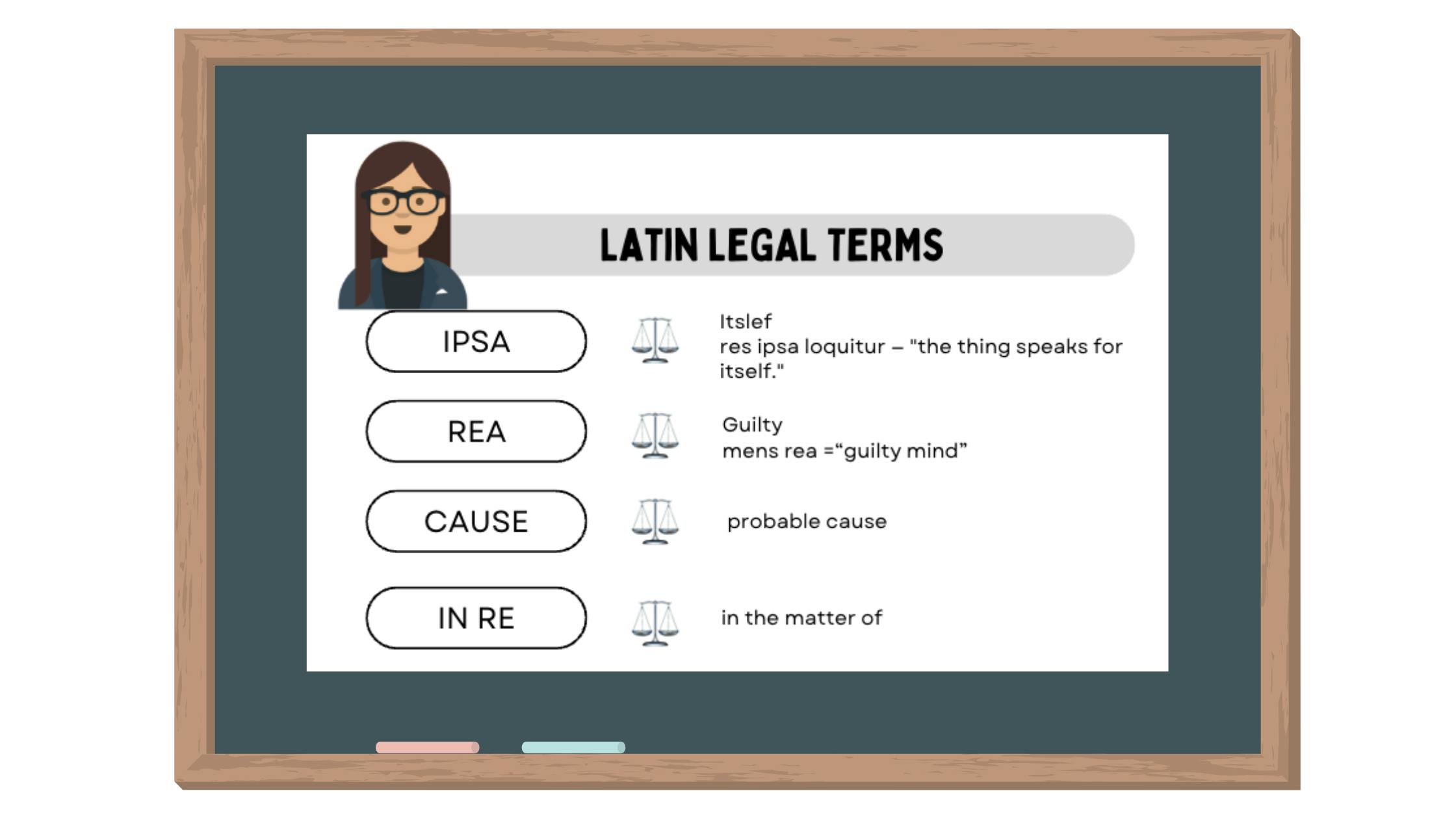An easy guide to the Latin words and phrases that show up in the grid
If you’ve ever hit a clue like “Latin for ‘I love’” or “Motto on U.S. coins” and drawn a blank, you’re not alone. Latin pops up a lot in crosswords, and it can feel like a foreign language (because, well, it is).
But here’s the good news: you don’t need to study Latin to become a better solver. You just need to get familiar with the small set of Latin words and phrases that show up again and again. Think of it as learning a bit of crossword Latin, a bite-sized cheat code that makes solving smoother and more fun.
So, why is Latin so common in crosswords? A few good reasons:
- Brevity: Latin words are often short (only two or three letters), which makes them perfect for filling tight corners of the grid.
- Good letters: They have a nice mix of vowels and consonants, which helps with crossing words.
- Classical roots: Many constructors (and longtime solvers) have backgrounds that include Latin, so these entries feel familiar.
- Cultural carryover: Even if you’ve never taken a Latin class, chances are you know phrases like et cetera, carpe diem, or alma mater; they’re everywhere in English.
Over time, many of these Latin terms have settled into the grid as part of what's known as crosswordese - not just ordinary vocabulary, but crossword vocabulary.
The Most Used Latin Words in the NYT Crossword
The Latin entries you’ll meet again and again — and again.
Some Latin words are practically ‘grid regulars’ appearing so often, they’ll soon feel like old acquaintances. According to data from xwordinfo.com, these nine (plus two bonus entries) are among the most frequently used Latin-related answers in The New York Times Crossword. Get to know them now, and you’ll be solving with a lot more confidence.
1. EST
“He/she/it is” in Latin
You’ll see this clued many different ways — sometimes with a direct Latin clue like “Latin 101 verb,” and sometimes more sneakily, as in “Is, in Isère.” That’s a reference to the French est (he/she/it is), which happens to look exactly like the Latin est. While the infinitive forms of “to be” differ (être in French, esse in Latin), some conjugated forms overlap because French, like other Romance languages, evolved from Latin. Clues love to play on that shared root. You’ll also see est in non-Latin contexts, like in abbreviations or phrases from other languages (“C’est la vie” ender), or even as a suffix (“Suffix with smart”). Versatile and vowel-rich, it’s a crossword favorite.
2. ESSE
“To be” in Latin
Often clued as “Latin infinitive” or “Caesar's existence”, this is a useful one to recognize. No need for a background in Latin grammar to spot it in the grid.
3. ET AL
Short for et alii (masculine or mixed gender), et aliae (feminine), or et alia (neuter), all of which mean “and others.”
You’ll see this all over academic writing and all over the grid. Clues often reference a citation, like “List-ending abbr.” or "And so forth" abbr.
4. EGO
Latin for “I”
Crosswords love this word, both for its Latin meaning and for its use in psychology or personality-themed clues. Think “Freud’s ‘I’” or “Concern for self”
5. AMOR
“Love” in Latin
Often clued with a poetic or mythological nod like “Cupid’s concern”, or “Word before vincit omnia” (“love conquers all”).
6. ERAT
“He/she/it was” in Latin
Another past-tense verb that gets lots of grid time. Look for clues like “Latin past tense” or “Formerly, in Latin”.
7. ETC.
Short for “et cetera” (“and the rest”)
Almost always clued as an abbreviation: “And so on: Abbr.,” “List ender,” or "Yadda yadda yadda ..."
8. ERGO
“Therefore” in Latin
Classic example: “Cogito, ___ sum” (“I think, therefore I am”). But also watch for clues like “Hence” or “Thus, to Cicero.”
9. ET TU
“And you?” — famously from Julius Caesar’s last words
Clues often nod to the betrayal: “Famous last words to Caesar” or “Words before ‘Brute’”. A dramatic little phrase that shows up a lot.
+2 Latin-ish Frequent Flyers
They don’t show up in Latin class quite the same way, but their roots are Latin, and they live in the grid:
10. ARIA
Originally Latin for “air”
In the grid, it means an operatic solo. Expect clues like “Opera highlight” or “Soprano’s showpiece”—a frequent and friendly entry.
11. ERA
From Latin “aera” (a counters or epoch)
One of the most common entries in crosswords, often clued as “Time period”, “Baseball stat”, or “Epoch”. It’s a Latin-rooted word, even if the clues aren’t Latin-themed.
👉 Pro tip: Just by recognizing these, you’ll have a huge head start on dozens of clues a month. And once you start seeing them, you really can’t unsee them.
Now that you’ve met the most frequently used Latin entries, let’s look at some other common terms, grouped by where they tend to show up. Latin appears across a range of crossword themes, from law and literature to music and mottos. Learning these words by category makes them easier to remember and quicker to spot when they reappear in clues.
Latin in the Court: Legal Terms You’ll See on the Grid
When crosswords go full law school.
Latin and the law go way back, and crossword grids haven’t forgotten it. Legal Latin phrases appear often, usually clued with the phrase “legal term” or “legal phrase,” which makes them easier to spot once you know what to look for. They may not all be everyday speech, but in crosswords, they’re very much in session.
Here are some legal Latin entries you’re likely to see:
- IPSA — “Itself, in a Latin legal phrase”
Think res ipsa loquitur — "the thing speaks for itself." - R E A — “‘Guilty,’ in a Latin legal phrase”
From mens rea, “guilty mind.” - CAUSE — “Probable ___ (legal standard)”
As in probable cause, a common phrase in both law and crosswords. - IN RE — “Legal phrase”
Meaning “in the matter of” is often seen in case names.

- IN REM — “Legal phrase”
Refers to legal actions directed at property rather than a person. - ON OR — “___ about (legal phrase)”
As in on or about [a date] — a phrasing that shows up in legal documents and cluework. - SUI — “___ juris (legal phrase)”
Latin for “of one’s own right,” as in being legally independent. - IPSO — “___ jure (legal phrase)”
“By the law itself” — often seen in constitutional or property law contexts. - ESSE — “De bene ___ (legal phrase)”
A phrase meaning “of well being,” or temporary acceptance in legal proceedings. - PRIMA FACIE — “What legal phrase means 'based on the first impression’?”
Occasionally appears in full — a longer entry, but a useful one. - VI ET ARMIS — “Latin legal term for trespass with force and violence”
A dramatic phrase that might pop up in themed or challenging puzzles. - CUI BONO — “Latin legal term meaning ‘for whose benefit is it?’”
A classic clue in crime-related puzzles. - PARI PASSU — “Latin legal term meaning ‘with equal speed or progress’”
Most often used in financial or contractual contexts. - ALIUNDE — “Latin legal term meaning ‘from another source,’ especially regarding evidence”
Less common, but a good one to file away for tougher grids. - NIHIL — “‘Nothing,’ in legal phrases”
Shows up in phrases like nihil obstat — “nothing hinders.” - RES — “Legal word”
Latin for “thing” — as in res judicata (a matter already judged) or res ipsa.
Latin in Academia: Scholarly Terms with Grid Cred
Old school… literally.
From mottos and degrees to philosophical concepts, Latin is baked into academic life. Here's a primer on academic Latin you’re likely to encounter in the grid:
- ALMA MATER — “School that one formerly attended” or “___ mater”
Literally “nourishing mother,” this poetic phrase refers to one’s former school or university. You’ll often see it clued as a proud nod to academic origins. - ALUMNAS — “Graduates”
The feminine plural of alumna, Latin for “foster daughter” or “pupil.” Often paired with alma mater in clues. (The masculine form is alumni, also crossword-relevant.) - TABULA (rasa) — “Clean slate”
Latin for “scraped tablet,” referring to a wax tablet ready for writing. In philosophy and psychology, tabula rasa represents a mind not yet shaped by experience. - IN SITU — “At the original location”
Latin for “in position,” used in science and archaeology (and crosswords) to mean something found or remaining in its original place. - A PRIORI — “Based on theory rather than observation”
Latin for “from the earlier.” In logic and philosophy, it describes knowledge gained independently of experience. Crossword clues may reference deduction or reasoning. - A POSTERIORI — “Based on experience”
The flip side of a priori, this means “from the latter.” It refers to reasoning grounded in observation. Clues may highlight empirical thinking or real-world evidence. - PHD — “Advanced deg.”
Short for philosophiæ doctor — Latin for “doctor of philosophy.” Common in grids, often clued with reference to academia or degrees. - AD HOC — “Formed for a specific purpose”
Meaning “to this,” ad hoc refers to something created for a particular situation. In puzzles, it may be clued as a temporary committee, solution, or plan.
Cultural and Beyond
From Roman epics to orchestral pits, Latin leaves a mark.
Latin’s legacy stretches far beyond law and academia. It echoes in national mottos, epic poetry, music notation, and everyday turns of phrase that still resonate today. In this section, we spotlight Latin words and expressions that show up in crosswords as cultural references, the kind that bring a bit of drama, beauty, or gravitas to the grid.
📜 Quotables and Classical Echoes
- AD ASTRA – Latin for “to the stars.” Often seen in the full phrase per aspera ad astra (“through hardships to the stars”), a poetic expression of striving or aspiration.
- ODI – Latin for “I hate.” This dramatic verb occasionally appears in clues referencing Roman poets like Catullus.
- HIC – Latin for “here.” Often part of hic et nunc (“here and now”) or other phrases with a philosophical or temporal flavor.
- CARPE DIEM – A classic crossword favorite meaning “seize the day.” Expect clues referencing living in the moment or famous movie quotes.
- E PLURIBUS UNUM – “Out of many, one.” A U.S. motto with Latin roots, this phrase appears in clues about coins, seals, or national identity.
- ECCE – Latin for “behold.” Most famously seen in Ecce homo (“Behold the man”), a biblical phrase frequently referenced in art and literature.
- AENEID – Virgil’s epic poem, a cornerstone of Latin literature. Occasionally clued as “Epic poem by Virgil” or “Work featuring Aeneas.”
- VENI, VIDI, VICI – “I came, I saw, I conquered.” This iconic phrase from Julius Caesar shows up in all kinds of clues: The "veni" in "Veni, vidi, vici" (ICAME), The "vidi" of "Veni, vidi, vici" (ISAW), or even “Veni, vidi, vici,” e.g. (BOAST or VERB).
- IN VINO VERITAS – “In wine, truth.” A classical saying suggesting people speak their true thoughts under the influence. Sometimes clued as a "boozy proverb" or "Latin saying about honesty."
🎼 In the Score: Musical Latin
- OPUS – Latin for “work,” as in a composer’s catalog (e.g., Opus 23). Crosswords may clue it with “Musical work” or “Beethoven work, e.g.”
- TACET – Latin for “is silent.” A musical direction telling a performer not to play. Often clued as “Word on a musical score.”
🎵 Heads-Up: Italian in Disguise
You’ll also see musical terms like ARIA (“Opera solo”) and ADAGIO (“Slow tempo”) show up often in puzzles. While they sound Latin, they’re actually of Italian origin, though both languages share roots and often overlap in musical vocabulary.
Biology & Latin Plurals
Latin shows up in anatomy, taxonomy, and medicine more than you might expect, and crossword clues love to draw on that. Many of these terms are worth knowing beyond the grid: some have already appeared in Wordle, and who knows when Connections might build on them. What makes them stand out in the plural is that they follow Latin grammar rules rather than the usual English -s or -es endings. Here are some Latin plurals you might encounter in the crossword:
- ULNAE – Forearm bones
- UVULAE – Dangly things in the back of the throat
- RADII – Another forearm bone (and a plural for rays, too)
- HUMERI – Upper arm bones
- UTERI – Plural of uterus
- SERA – Plural of serum
- FEMORA – Plural of femur, the thigh bone
- CERVIX – Latin for “neck” (Plural: cervices)
- COXAE – Hip bones
- CORPORA – Plural of corpus, meaning “body” (think corpus callosum or corpus delicti)
- LOCI – Plural of locus, a position or place, especially in genetics
- OVA – Plural of ovum, the Latin word for egg. Expect clues like “Eggs, biologically.”
Extra Credit - Latin Words That Might Show Up
These words don’t show up so often in crosswords, but they do have Latin roots and occasionally sneak into clues. If you’re in the mood to level up your trivia game (or just like a good Latin phrase), here’s a bonus list worth knowing:
- AD LIB – Short for ad libitum, meaning “at one’s pleasure.” Improvise away!
- AD NAUSEAM – To a sickening degree; endlessly.
- BONA FIDE – In good faith; genuine or authentic.
- CUM LAUDE / MAGNA CUM LAUDE / SUMMA CUM LAUDE – Latin for “with praise,” “with great praise,” and “with highest praise.” Honors commonly seen on diplomas.
- ALIBI – Latin for “elsewhere.” A legal defense and crossword standby.
- ALIAS – “Otherwise”; used for alternate names or identities.
- VALE – Latin for “farewell” or “goodbye.”
- SINISTER – Latin for “left.” In ancient Rome, left-handedness was seen as unlucky—hence the word’s modern connotation.
- FORUM – Originally a Roman public square; now means a space for discussion, online or off.
- PRO BONO – Short for pro bono publico (“for the public good”). Legal work done for free.
- VERBATIM – Word for word. Exact repetition.
- VIA – Latin for “way” or “by way of.” Common in both directions and derivations.
- LACUNA – A gap, missing piece, or blank space, literally “a little lake” in Latin. Used today to describe anything from holes in memory to missing manuscript lines.
Wrapping Up: Latin Lessons That Stick
From courtroom jargon to poetic phrases, these entries come up again and again in The New York Times Crossword and, yes, even in The Mini. Knowing what they mean (and how they’re clued) gives you an edge, no matter the grid size.
Want to put your knowledge to the test?
Explore our full NYT Crossword archive and see how often these Latin terms show up. The more you spot them, the more second nature they'll become.
And don’t forget to download our handy printable Latin cheat sheet to keep by your side while you solve.
Happy solving — et bonam fortunam!

 NY Times Mini
NY Times Mini NY Times Crossword
NY Times Crossword NY Times Wordle
NY Times Wordle NY Times Connections
NY Times Connections NY Times Connections Sports Edition
NY Times Connections Sports Edition NY Times Strands
NY Times Strands NY Times Spelling Bee
NY Times Spelling Bee NY Times Pips
NY Times Pips Word Salad
Word Salad Contexto
Contexto Blossom
Blossom Betweenle
Betweenle Conexo
Conexo Bracket City
Bracket City Fluxis
Fluxis Stacks
Stacks Atlantic Crossword
Atlantic Crossword LA Times Mini
LA Times Mini LA Times Crossword
LA Times Crossword Anagram Solver
Anagram Solver Scrabble Word Finder
Scrabble Word Finder Words With Friends Word Finder
Words With Friends Word Finder Atlantic Games
Atlantic Games LA Times
LA Times Zorzzle
Zorzzle Word of Fortune
Word of Fortune
